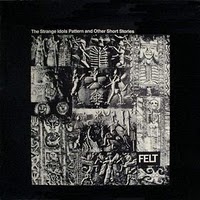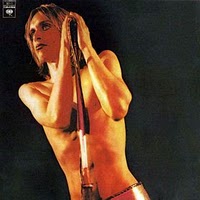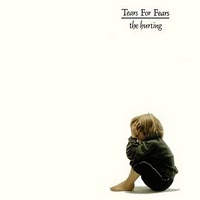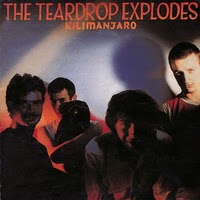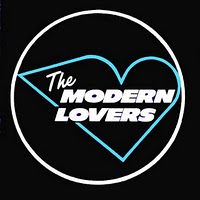 What on earth was I thinking of? After English Settlement I gave up on XTC for 20 years! There’s simply no excuse. I knew the first time I heard English Settlement I was listening to a classic and yet I still let my interest lapse. This is probably one of the most perfectly crafted double albums by any English band, notwithstanding Exile On Main Street and London Calling. It contains such complex, intricate constructions the word “song” seems too restrictive a word to describe their function. Like an absorbing novel, a spectacular movie or a sumptuous meal, this album can be enjoyed on many levels. There was an abridged version of English Settlement released at the same time as this double and I’m aware that many prefer it, feeling it cuts out the filler. I’ve never heard it and I never want to. Listening to English Settlement today, I can’t think of a single track I’d want to get rid of. It would be like choosing a favourite from among my kids.
What on earth was I thinking of? After English Settlement I gave up on XTC for 20 years! There’s simply no excuse. I knew the first time I heard English Settlement I was listening to a classic and yet I still let my interest lapse. This is probably one of the most perfectly crafted double albums by any English band, notwithstanding Exile On Main Street and London Calling. It contains such complex, intricate constructions the word “song” seems too restrictive a word to describe their function. Like an absorbing novel, a spectacular movie or a sumptuous meal, this album can be enjoyed on many levels. There was an abridged version of English Settlement released at the same time as this double and I’m aware that many prefer it, feeling it cuts out the filler. I’ve never heard it and I never want to. Listening to English Settlement today, I can’t think of a single track I’d want to get rid of. It would be like choosing a favourite from among my kids.
Considering how perfect this album is I’ve always felt that it was around the release of English Settlement that it all started going wrong for XTC. An overstressed and exhausted Andy Partridge was overtaken by stage-fright and suffered a breakdown soon after the album’s release. As a result the album passed relatively unnoticed. How huge could this band have been if given the opportunity to publicise and tour English Settlement? How huge could this band have been if Partridge had ever been able to overcome his fear? Tragic really.
Even though Colin Moulding contributes the ska rhythms of “English Roundabout”, the twisted “Fly On The Wall” and the excellent “Ball And Chain”, English Settlement really is Partridge’s album. “Senses Working Overtime” would provide the band with their only top ten single. “All Of A Sudden (It’s Too Late)” is simply sublime. “Yacht Dance” is a mix of pure pop and English folk and Dave Gregory’s Spanish guitar is a revelation and the flamenco rhythms continue to ripple through anti-gun rant “Melt The Guns”. “It’s Nearly Africa” brings the sounds of that continent into XTC’s quaintly weird world and “Snowman” takes what is well-worn subject matter for a song – a crumbling relationship – and comes at it from an unusual perspective.
English Settlement is a fabulous album but, amazingly, still isn’t the high point for XTC but, as an example of the quintessential English band playing the quintessential English eccentrics, it’s difficult to beat. –Ian


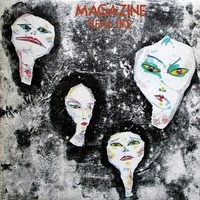
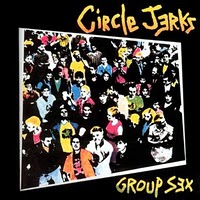
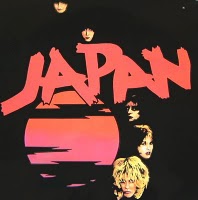
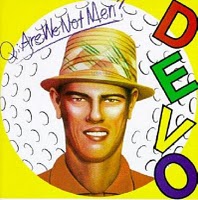
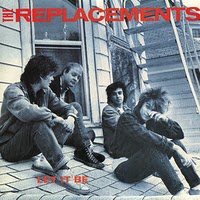
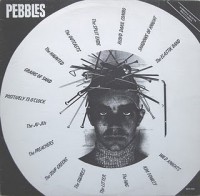
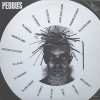 1. Pebbles – Conceived and created in Australia only a few years after the original Nuggets, this series focused on more raw and obscure (though not entirely unknown) acts from the US. Numerous volumes and offshoot series of widely varying quality proliferated through the 70’s and 80’s, but volumes 1-6 are pretty darn solid.
1. Pebbles – Conceived and created in Australia only a few years after the original Nuggets, this series focused on more raw and obscure (though not entirely unknown) acts from the US. Numerous volumes and offshoot series of widely varying quality proliferated through the 70’s and 80’s, but volumes 1-6 are pretty darn solid.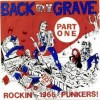 2. Back From The Grave – One of the few series worthy of the “60’s Garage Rock” classification, the US bands represented here are young, fast, raw, and sometimes very poorly recorded, which undoubtedly adds to its authenticity.
2. Back From The Grave – One of the few series worthy of the “60’s Garage Rock” classification, the US bands represented here are young, fast, raw, and sometimes very poorly recorded, which undoubtedly adds to its authenticity.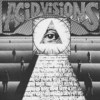 3. Acid Visions – Regional garage and psych compilations are very common. This one focuses on the Lone Star State, which produced a surprisingly diverse and consistently high quality array of sounds in the ’60s. The third and final volume focuses on female artists, a very underrepresented demographic in this male-dominated realm.
3. Acid Visions – Regional garage and psych compilations are very common. This one focuses on the Lone Star State, which produced a surprisingly diverse and consistently high quality array of sounds in the ’60s. The third and final volume focuses on female artists, a very underrepresented demographic in this male-dominated realm.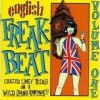 4. English Freakbeat – Since suburban two-car garages are not as common in England, perhaps it was inevitable that a moniker for similar music from the British Isles would be invented, and “Freakbeat” seems just as apt as any. Though the bands on these five LPs share many commonalities with their American garage brethren, a rawer and more purist blues sensibility often dominates.
4. English Freakbeat – Since suburban two-car garages are not as common in England, perhaps it was inevitable that a moniker for similar music from the British Isles would be invented, and “Freakbeat” seems just as apt as any. Though the bands on these five LPs share many commonalities with their American garage brethren, a rawer and more purist blues sensibility often dominates.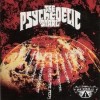 5. Rubble – While this Anglocentric series covers the Freakbeat sound like the series mentioned above, its emphasis is on the more cerebral and whimsical Psych-Pop of the late ’60s British and European scenes. Though spotty at times, many installments in this twenty volume series have numerous great tracks.
5. Rubble – While this Anglocentric series covers the Freakbeat sound like the series mentioned above, its emphasis is on the more cerebral and whimsical Psych-Pop of the late ’60s British and European scenes. Though spotty at times, many installments in this twenty volume series have numerous great tracks.